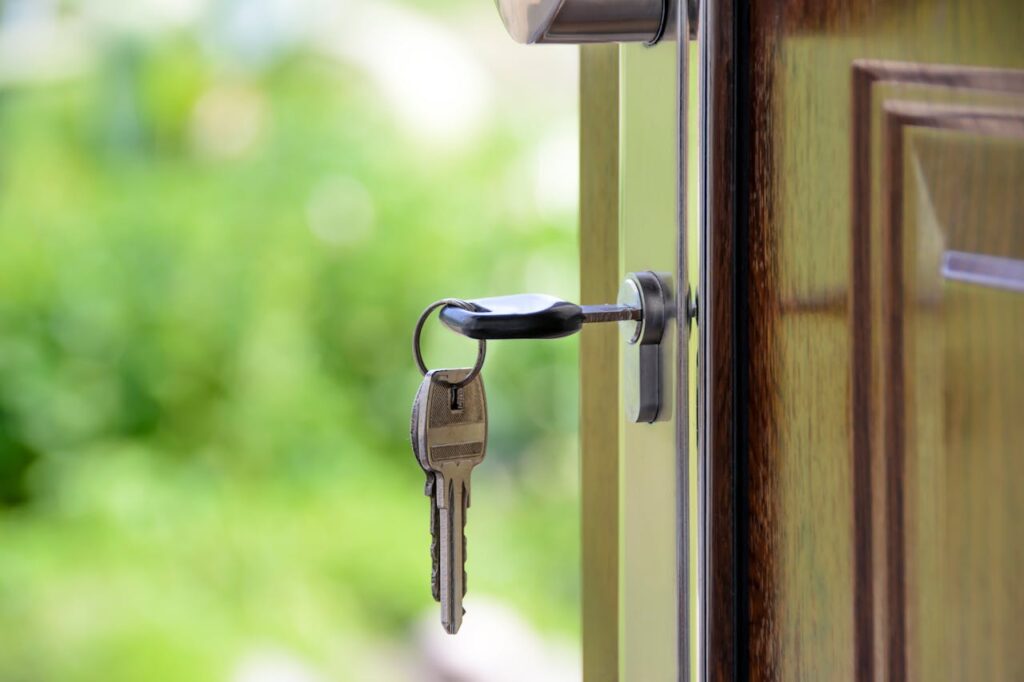Seniors and Retirees, Your Path to Unlocking Homeownership Beyond Retirement Starts Here
Looking for that perfect space to spend the rest of your retirement years, but worried about qualifying for a mortgage? You’re not alone – 19% of homeowners 65 and older in the U.S. still have a mortgage. The good news is, there are plenty of mortgages for seniors and retirees available on the market. Everybody’s situation in retirement is different and depending on your situation, there’s a home loan that may be right for you.
In this guide, we’ll be going over how you can get a mortgage for seniors and retirees. From different mortgage options to how you can qualify, you’ll be set to take on your next homeownership adventure – whatever that means for you.
Can I Get a Mortgage as a Senior or Retiree?
Yes, you can get mortgages for seniors and retirees! When lenders evaluate eligibility, they can use several different factors, but they’re not allowed to use your age. Thanks to the Equal Credit Opportunity Act (ECOA), lenders are prohibited from discriminating against an applicant because of their age in addition to other factors like sex, race, religion, national origin, and marital status. While age isn’t a factor they can use, it’s still common for them to ask for your age on the application for demographic data collection as mandated by the Home Mortgage Disclosure Act (HMDA).
Is It Hard to Get Mortgages for Seniors and Retirees?
While your age shouldn’t be used as a qualifying factor, it can still be challenging to get mortgages for seniors and retirees who are going through the traditional path, like a conventional loan. Usually, conventional loans require traditional income documents like pay stubs, W2s, and tax returns because they are considered QM loans (qualified mortgages). This can be a major hurdle when trying to qualify for a conventional loan due to the strict lending standards set by the Consumer Financial Protection Bureau (CFPB).
As a retiree or senior, you’re likely to have little to no documented income if you’re no longer working and perhaps just living on your assets or investments. This is where non-QM loans (non-qualified mortgages) can be a lifeline. Non-QM loans cater to borrowers with more unique situations since they’re not subject to the CFPB lending standards. This means that each non-QM lender can set their own lending requirements, resulting in more flexibility.
There are plenty of non-QM loans that seniors and retirees can be eligible for using other factors to qualify, like liquid assets (investment accounts, bank accounts, etc.) and bank statements. We’ll cover these alternative options in the next section to give you a better idea of which non-QM loan may be the right fit for you.

What Home Loan Options Do I Have as a Senior or Retiree?
Luckily, you still have many options to get mortgages for seniors and retirees. If you decide to go the conventional route, just keep in mind that it will likely be much more difficult to qualify if you no longer have any documented income. Beyond conventional loans, non-QM loans give seniors and retirees the flexibility to find a loan type that works best for them and to qualify without traditional income verification.
Below, we’ve outlined some alternative loan options that work best for seniors and retirees:
- Asset Depletion Loans: These loans use your liquid assets from investments or bank accounts to determine your eligibility instead of your traditional income. Lenders typically calculate how much you can afford each month based on the total value of your liquid assets divided by the number of months in the loan term. If you’re a senior or retiree that has built yourself a sizable nest egg, asset depletion loans can be a good option.
- Bank Statement Loans: As the name of the loan suggests, these loans take a look at your bank statements to see if you qualify rather than traditional income documents. Lenders evaluate your average monthly income by adding up all of the deposits within a certain time frame and then dividing it by the number of months. If you’re a senior or retiree that receives Social Security or pension income, bank statement loans can be a good option.
- Interest-Only Mortgages: These mortgages have a fixed period, typically five to 10 years, where the borrower is only required to pay the interest payments on the loan rather than both the principal and interest. This results in lower monthly payments during the initial interest-only period, making it much easier to afford a mortgage. If you’re a senior or retiree that is living on a limited fixed income, interest-only mortgages can be a good option.
- VA Loans: These loans are government-backed and are available for veterans. They offer numerous benefits, such as no down payment required, no mortgage insurance required, competitive interest rates, and flexible credit score requirements. If you’re a senior or retiree veteran, VA loans can be a good option. Note that veterans, active-duty service members, National Guard members, reserve, and surviving spouses of veterans are eligible for VA loans. There are specific criteria and minimum requirements based on when you served that must be met to qualify, along with a Certificate of Eligibility (COE), credit and income requirements.
- FHA Loans: These loans are also government-backed and are available to anyone who is looking to purchase a primary residence that meets the FHA’s minimum property standards. The qualification criteria for FHA loans are less strict, allowing borrowers with a credit score as low as 500 qualify. If you’re a senior or retiree with some form of income, such as Social Security, FHA loans can be a good option.
While the options mentioned above can be great for those looking to purchase a new home, what if you already have one and you want to unlock your home equity? If a large unexpected expense has come up or you’re looking to consolidate your debt, you have other options as a homeowner:
- Home Equity Loan: These provide a lump sum of cash upfront, using the equity you’ve built in your home as collateral. You repay the loan with interest over a fixed term, similar to a car loan.
- Home Equity Line of Credit (HELOC): Think of a HELOC as a credit card for your home equity. It gives you access to a credit line you can tap into as needed, up to a certain limit. You only repay interest on the amount you borrow, but there’s usually a period where you can just withdraw funds without repaying principal.
- Cash-Out Refinance: This reworks your entire mortgage. You get a new, larger loan that pays off your existing mortgage and gives you the difference in cash. The new loan will likely have a different interest rate and term than your original mortgage.
How Can I Qualify for a Mortgage as a Senior or Retiree?
Since lenders can each set their own criteria for the non-QM loan options we mentioned above, qualification requirements may vary. While we can’t speak for other lenders, we’ve listed Defy’s requirements for each non-QM loan type below to give you an idea of what you may need:
- Asset Depletion Loans:
- Proof of liquid assets
- No tax returns required
- Maximum LTV of 80%
- Minimum FICO score of 620+
- No maximum loan amount
- Only available for primary residences and second homes
- Bank Statement Loans:
- Personal or business bank statements accepted
- 12 to 24 months’ worth of bank statements
- Maximum LTV of 90%
- Minimum FICO score of 620+
- Maximum loan amount of $6 million
- No tax returns required
- Available for any 1-4 unit properties
- Interest-Only Mortgages:
- Maximum LTV of 85%
- Minimum FICO score of 620+
- Maximum loan amount of $10 million
- Interest-only period of 5, 7, or 10 years
- Available for primary residences, second homes, or investment properties

Things to Consider Before Getting Mortgages for Seniors and Retirees
Before diving into a mortgage as a senior or retiree, take a close look at your financial health. Consider your income sources like Social Security, pensions, and investments. Factor in any existing debts and monthly expenses to understand your Debt-to-Income Ratio (DTI). Additionally, assess your credit score – a strong score unlocks better loan options. Don’t forget about saving for a down payment, which can significantly reduce your loan amount and monthly payments. Finally, factor in closing costs, which can add up quickly, so plan accordingly to avoid any surprises.
Mortgages for Seniors and Retirees: FAQs
- If I’m a senior or retiree, can I get a mortgage?
Yes, absolutely! Age shouldn’t be a qualifying factor when it comes to mortgages for seniors and retirees because of the Equal Credit Opportunity Act (ECOA), but you’ll still have to meet the lender’s other requirements. However, keep in mind that lenders often still ask for your age purely to collect demographic data as mandated by the Home Mortgage Disclosure Act (HMDA).
- Are there special mortgages for seniors or retirees?
Not exactly – there are no special mortgages based solely on age. However, there are alternative mortgage options, like non-QM loans. Non-QM loans don’t require traditional income documents, which can make qualifying for a mortgage as a senior or retiree much easier. There are several different types of non-QM loans, so it’s likely you’ll find an option that’s more catered to your needs.
- Is it harder to get mortgages for seniors and retirees?
Yes, it can be more challenging for seniors or retirees to secure a mortgage. Not because of their age, but because of the lack of documented income. Most seniors and retirees are at a point in their lives where they’ve stopped working and are living off of their assets or investments. This is where non-QM loans can be a lifeline – allowing seniors and retirees to qualify for a mortgage using alternative income verification methods like their liquid asset portfolio or bank statements.
- Are reverse mortgages a good idea for seniors or retirees?
Reverse mortgages can be a good idea for seniors or retirees who need additional income and have significant home equity. However, they come with risks and costs that should be carefully considered.
- What are some alternatives to reverse mortgages for seniors and retirees?
If you’re a senior or retiree looking for access to cash by unlocking your home equity, there are a few other options, including home equity loans, HELOCs, or a cash-out refinance.
- What mortgage options do I have as a senior or retiree?
As a senior or retiree, you have plenty of mortgage options depending on your situation. Some options you can consider are asset depletion loans, bank statement loans, interest-only mortgages, or VA loans if you’re a veteran.
- What are the qualification requirements for mortgages for seniors and retirees?
The qualification requirements for a mortgage for seniors and retirees can vary depending on the lender and the type of loan you choose. We recommend reaching out to lenders directly to find out what you’ll need to qualify for a certain type of loan.
- What credit score do I need to qualify for a mortgage for seniors and retirees?
Specific credit score requirements will vary by lender and loan type. At Defy, we require a minimum FICO score of 620+ for most of our non-QM loan options.
- Can I get a mortgage as a senior or retiree with Defy Mortgage?
Yes! You can get a mortgage for seniors or retirees through Defy Mortgage. We have plenty of loan types to choose from and can guide you through every step of the way. Contact us to learn more about your options.
- Is it possible to get a mortgage as a senior or retiree with lower income?
Yes, it is possible! If you’re a senior or retiree with little to no income, but have built up a solid nest egg through liquid assets, you may be able to qualify for an asset depletion loan. These loans take your liquid assets like 401ks, CDs, investment accounts, and bank accounts to determine how much home you can afford rather than traditional income documents.







